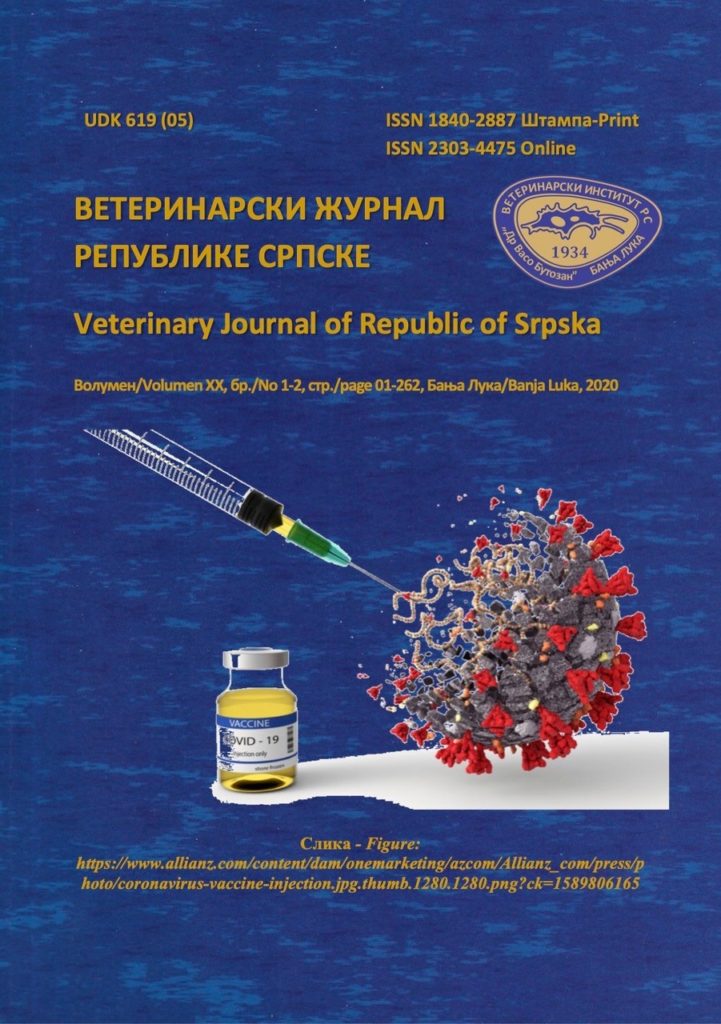MICROBIOLOGICAL PROPERTY OF RAW MEAT IMPORTS IN THE YEAR 2017
DOI:
https://doi.org/10.7251/VETJEN2001118VAbstract
International trade requires food safety guarantees based on specialized hygiene standards, transparency procedures, and programs. Meat, because of its high water content and nutrition, can be an ideal medium for microorganism growth and multiplication. Salmonella, as one of the most common pathogens that can be transmitted from animals to humans, causes major public health problems worldwide. Although mortality is low, the disease has important social and economic consequences. Based on governmental regulation, Serbia runs an active, official control of Salmonella in meat. From January to December 2017, 193 samples of imported pork, beef, lamb, kid, and poultry meat were analyzed for the presence of Salmonella spp. Only one (0.52%) of all analyzed samples was positive to Salmonella spp. The positive sample was frozen chicken drumsticks together with thighs originated from Poland, which makes 6.67% of the total examined poultry meat samples. Infected poultry is one of the most important reservoirs of Salmonella that are transmitted to humans through the food chain. The identity of the isolated strain was biochemically and serologically confirmed to be Salmonella Infantis. This pathogen is in the 4th place of most common Salmonella serovar among human isolates in Europe and the most common serovar isolated from poultry meat. In order to decrease the prevalence of Salmonella spp. it is necessary to maintain all the food safety standards through the whole food chain, from farm to fork.

